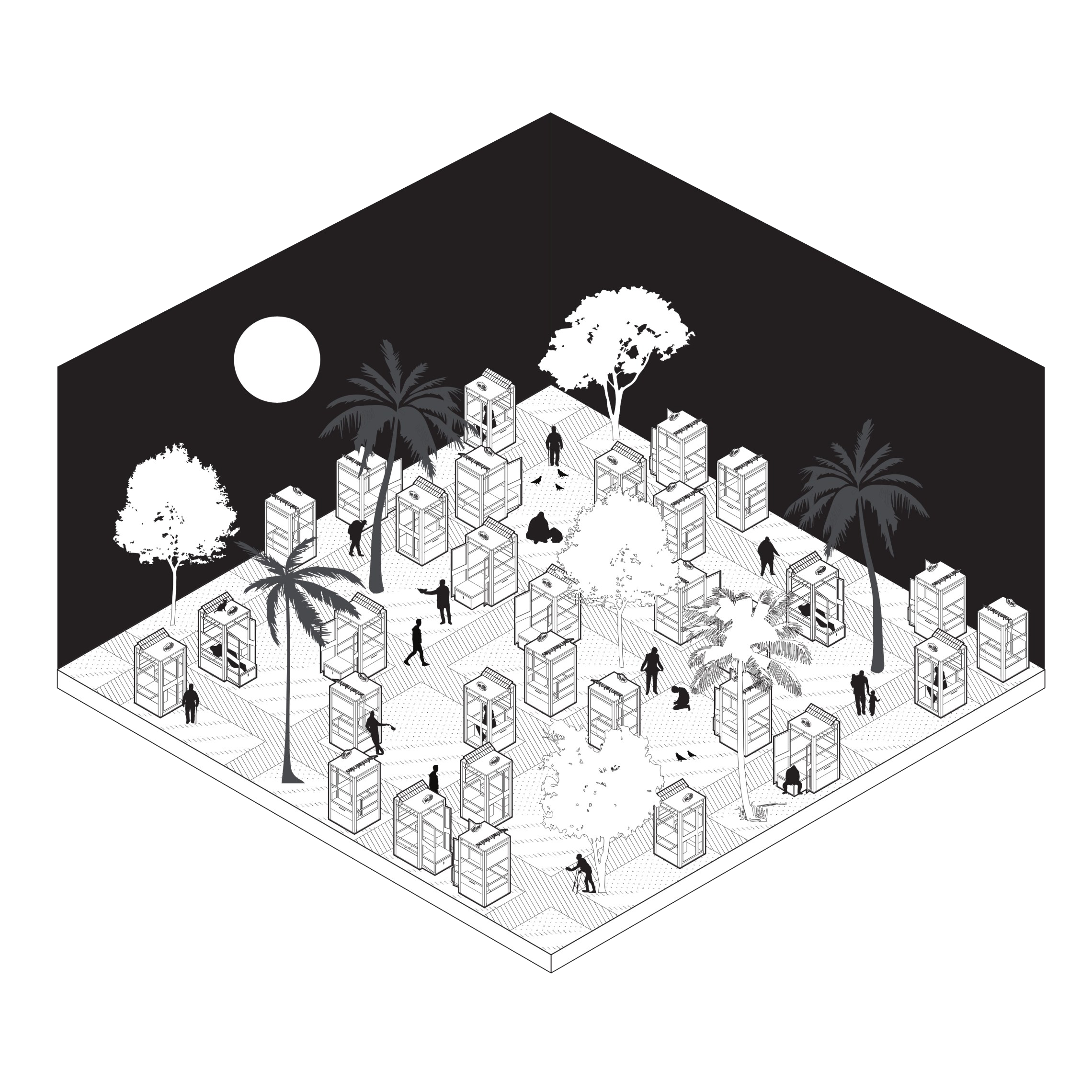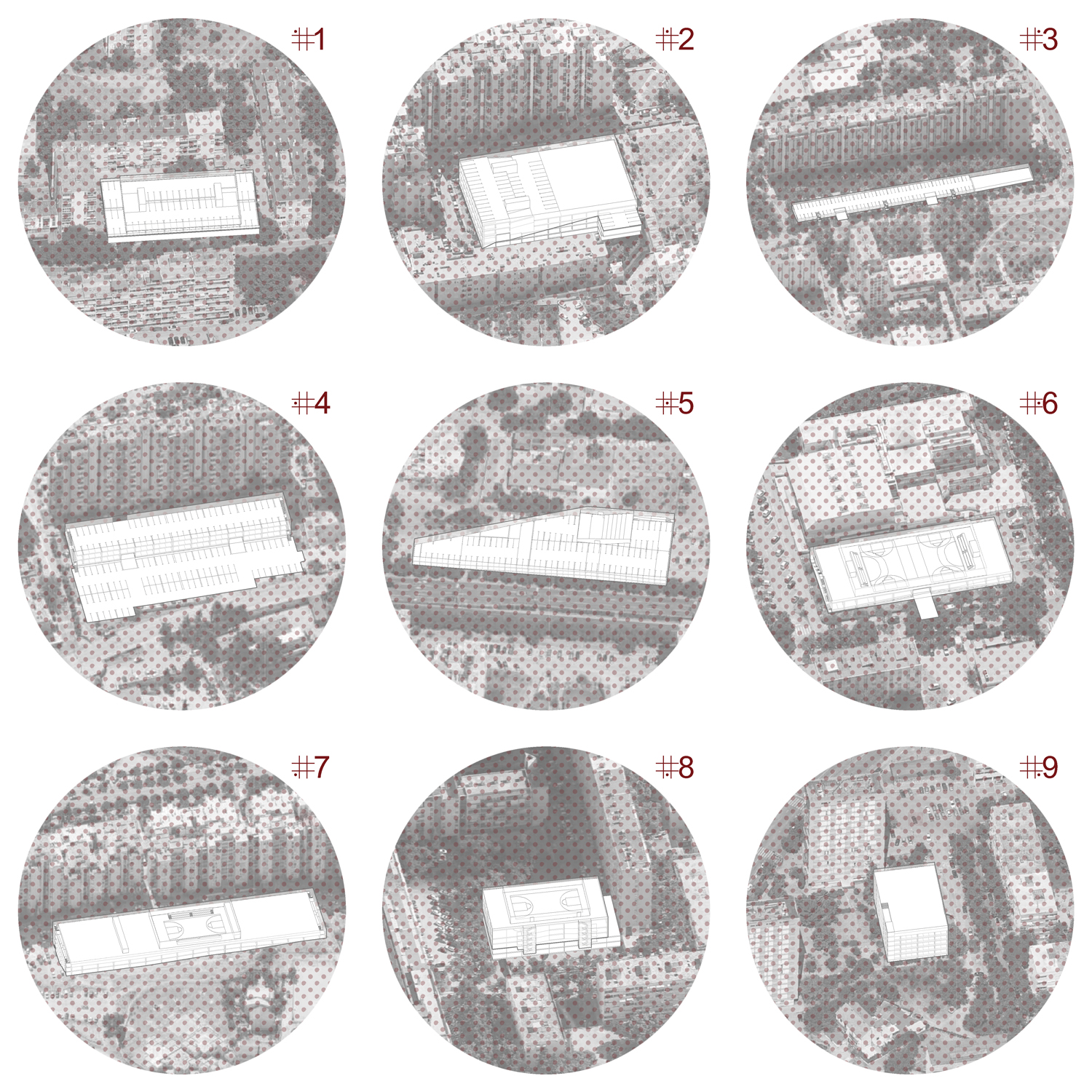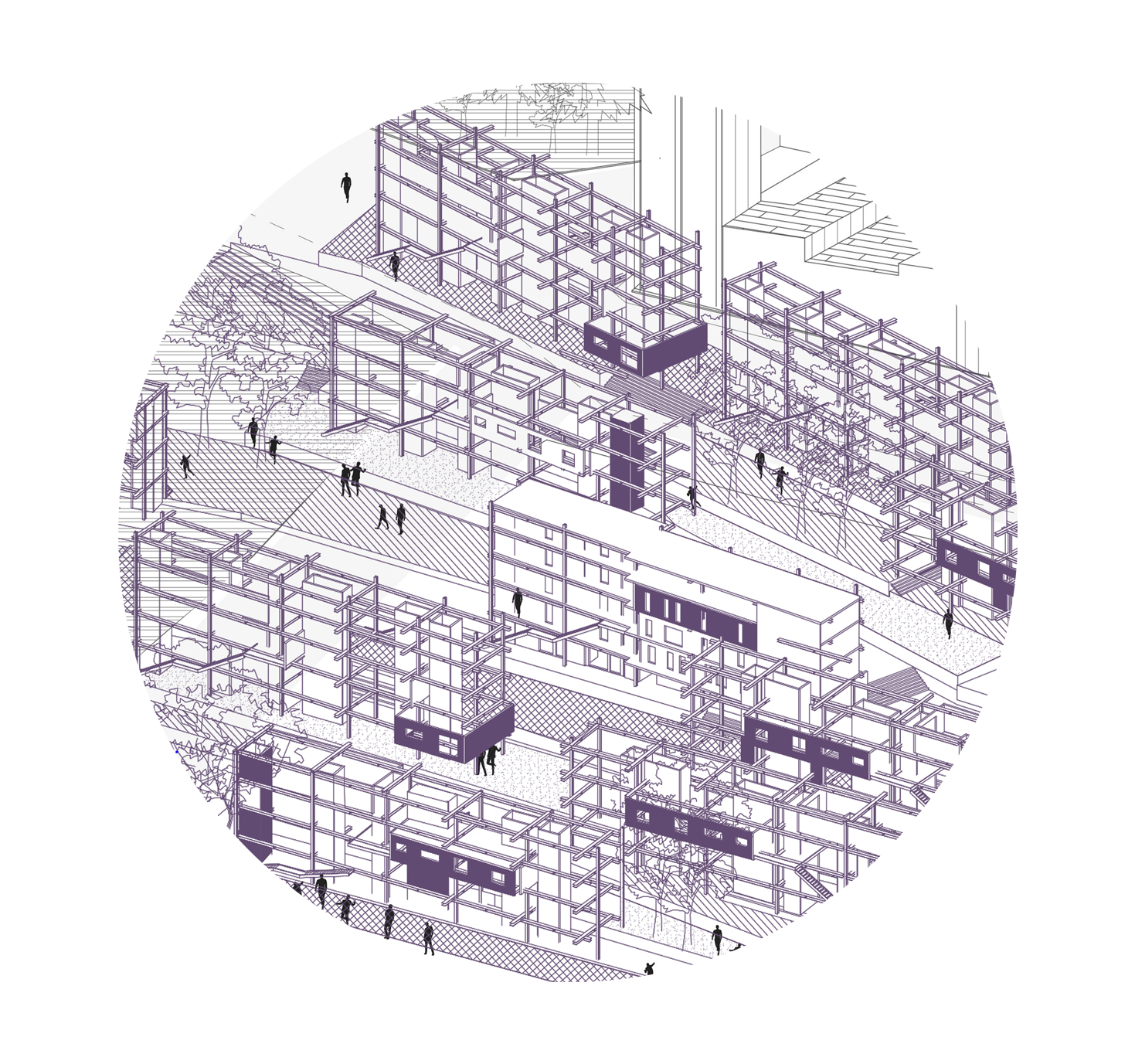The project deals with the theme of the invisible: the actuality, the people and the spaces that seem to be hidden from our sight, how often we refuse to see them. Specifically the condition of food waste, the homelessness and telephone booths.
Analyzing the data, we found out we waste about 1/3 of our expenditure on average. Among all the steps in the food chain we waste 3.8 million tons of food in Italy and just with the home-food waste, we could feed almost a third of the Italian population, several times the number of homeless people present on our territory, which in 2016 was 50,724b.
On the other hand, the telephone booths that appear on the Italian territory from the last decade of the twentieth century, are today real estate presences and forgotten by most, they are registered 103,861 in 2016. From the analysis of the data, the developed project is therefore based on the reconversion of the telephone booths in temporary shelters for the homeless, central machine for the food waste recycling organization.
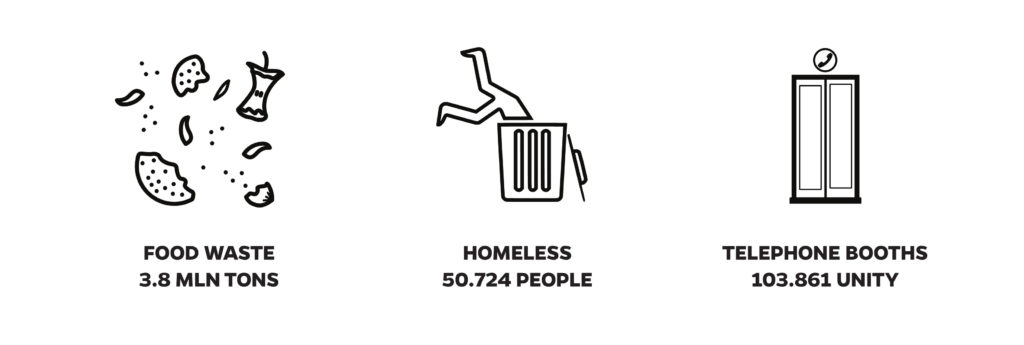
The idea consists of creating the IN-VISIBLE city: a system that denounces and sensitizes our community so that the Invisibles are finally kept in consideration like all the rest. Not taking into consideration the social aspects and the consequences of such a plan, automatically results in the exaltation of the project imagining a dystopian system that consisting solely of telephone booths, no longer reused as temporary shelter for homeless but as normal dwellings for a total poor community that only lives off the food waste of the world. In a society where everyone is invisible, everyone will finally be able to see the other.
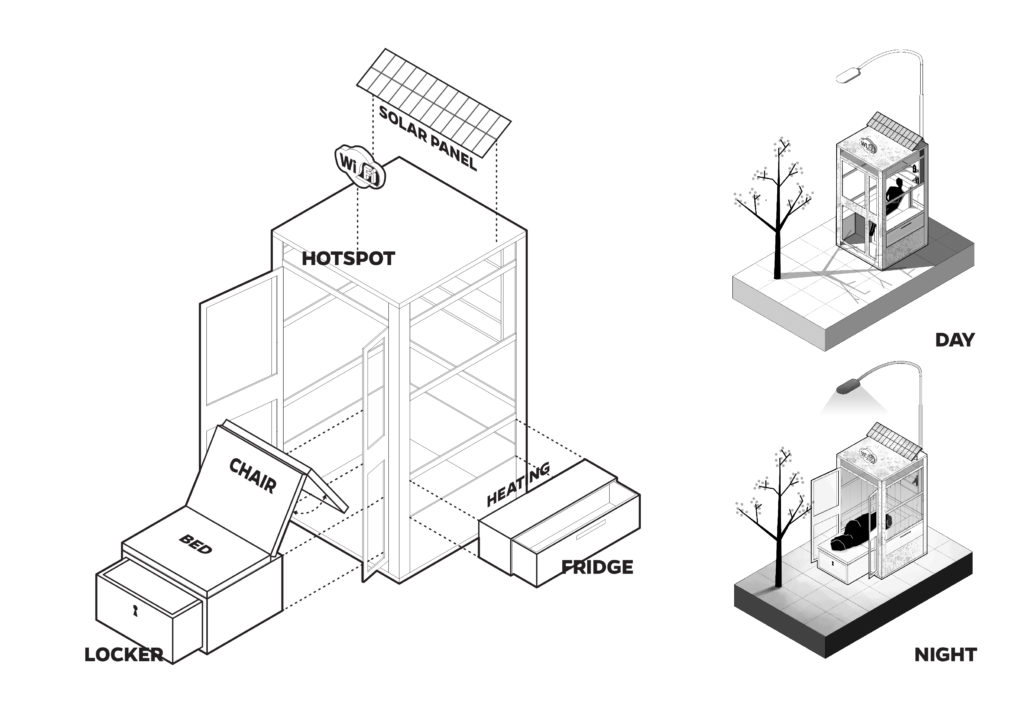
The cabins will be equipped with a photovoltaic panel that will ensure their energy independence. The Wi-Fi hotspot will increase the visibility and usability and it will extend the time use throughout all hours of the day. A small fridge will ensure the freshness of meals donated by ordinary citizens to refugees, the same cooling system will heat from his back the cabins and overcome the coldest nights. Finally, a modular extendable chair will be able to take the passer-by by day and the beggar on the night, whose base will contain a locker for the personal belongings of the guest.
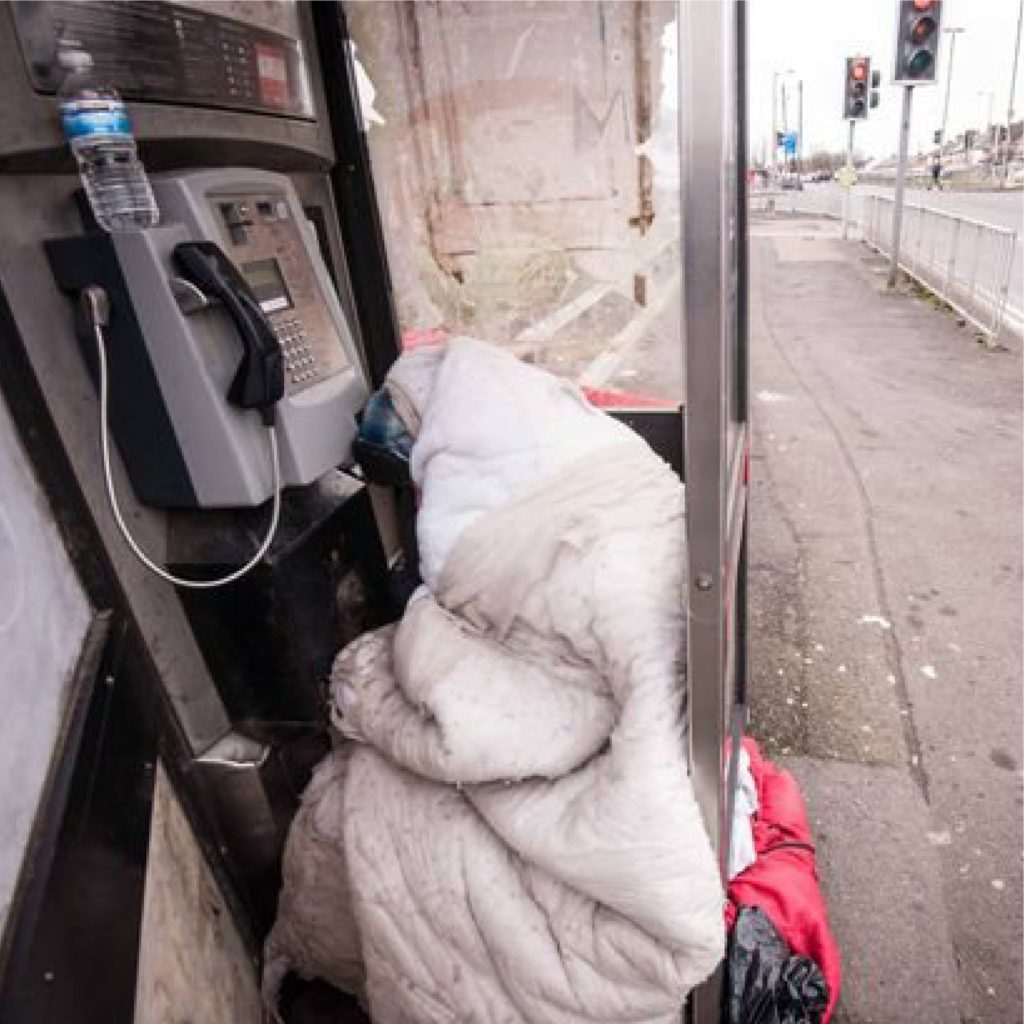
Author: Giacomo Cossu, a 4th-year student at the Dipartimento di Architettura, Design e Urbanistica ad Alghero

